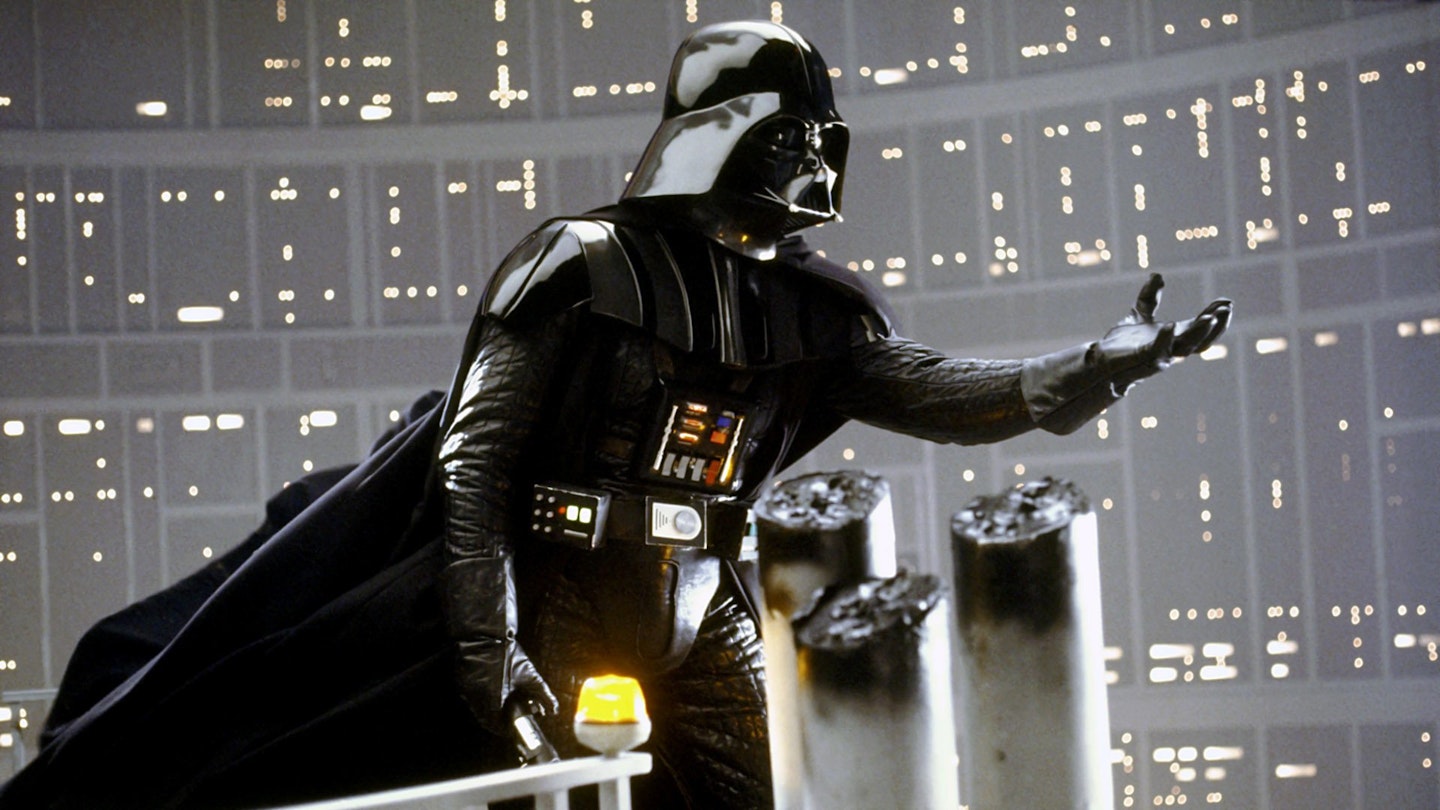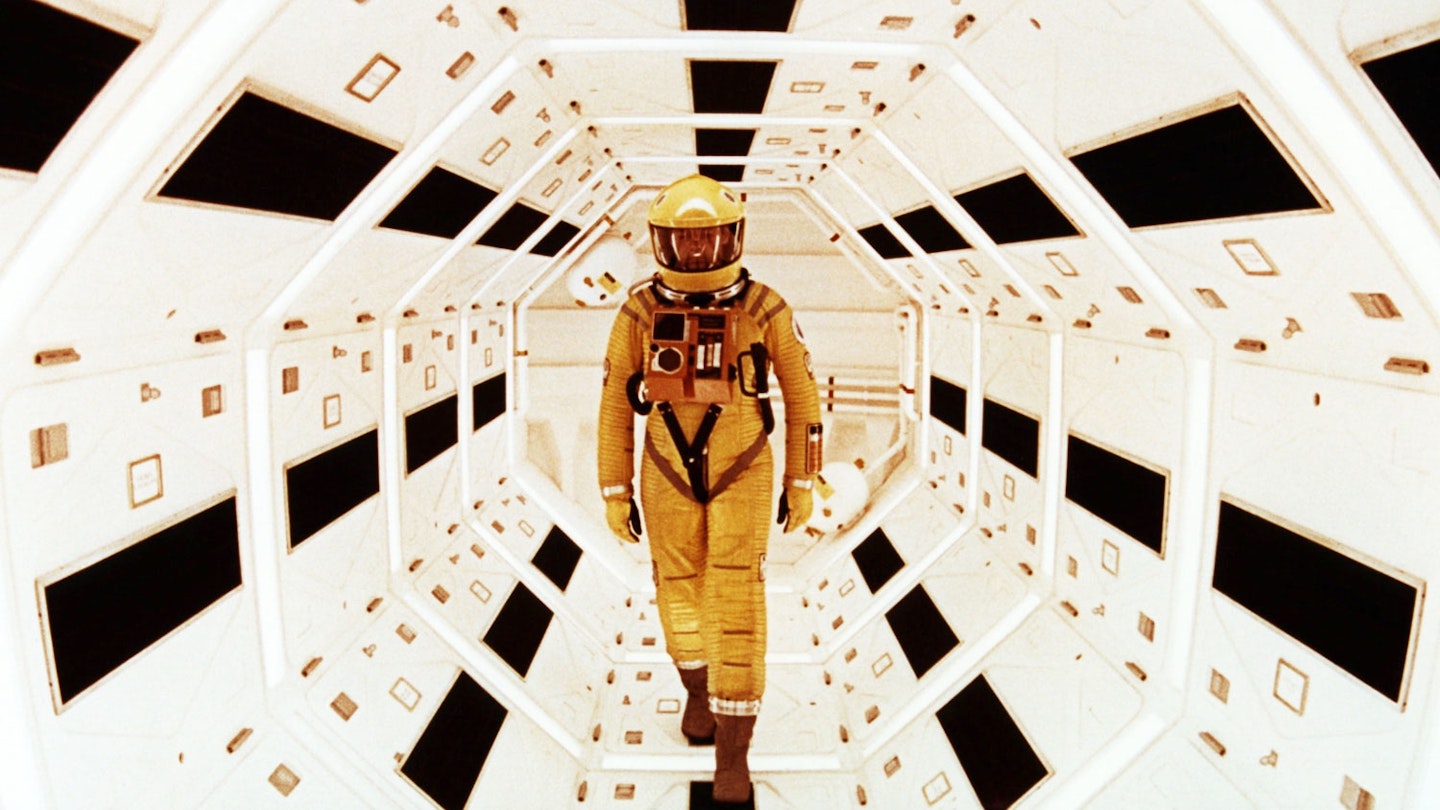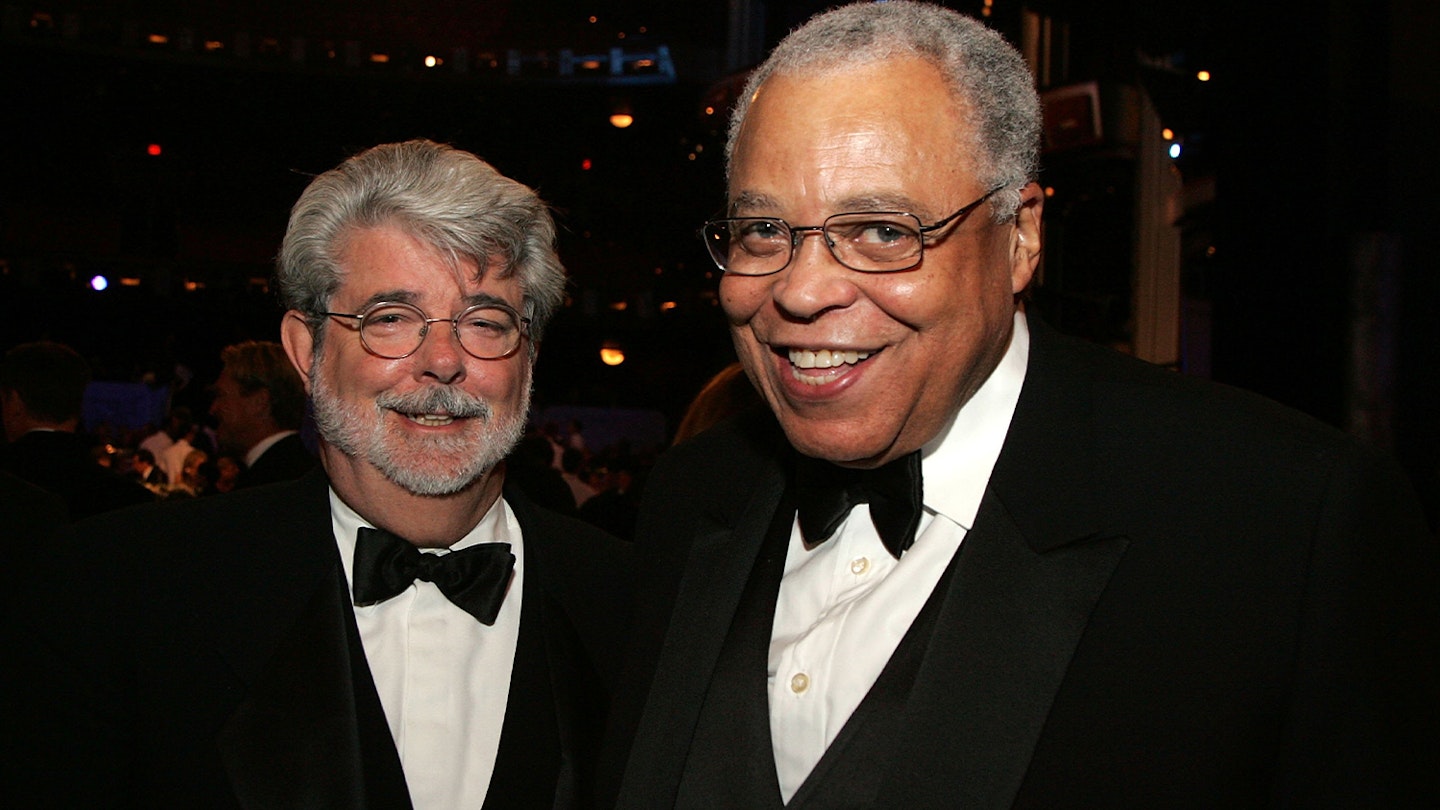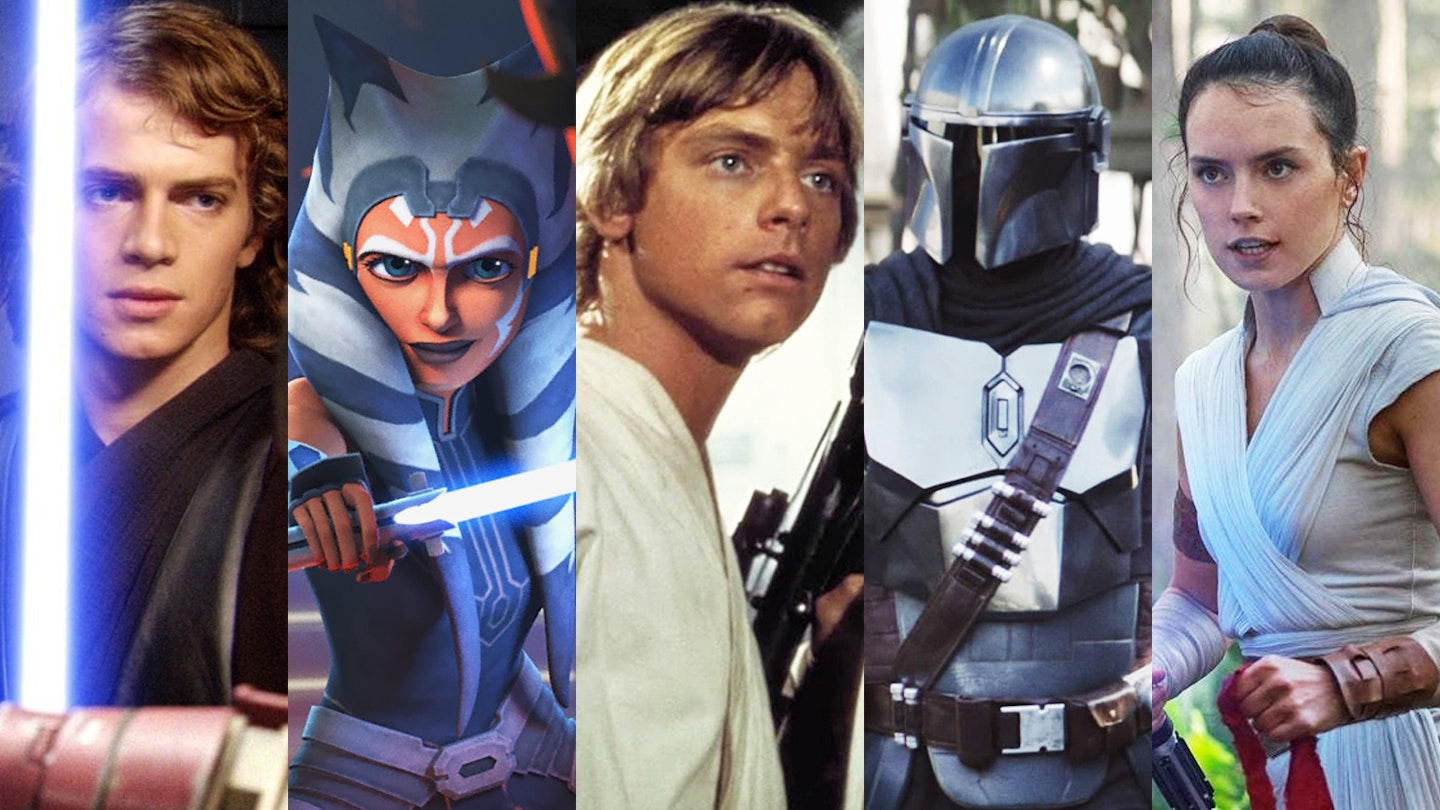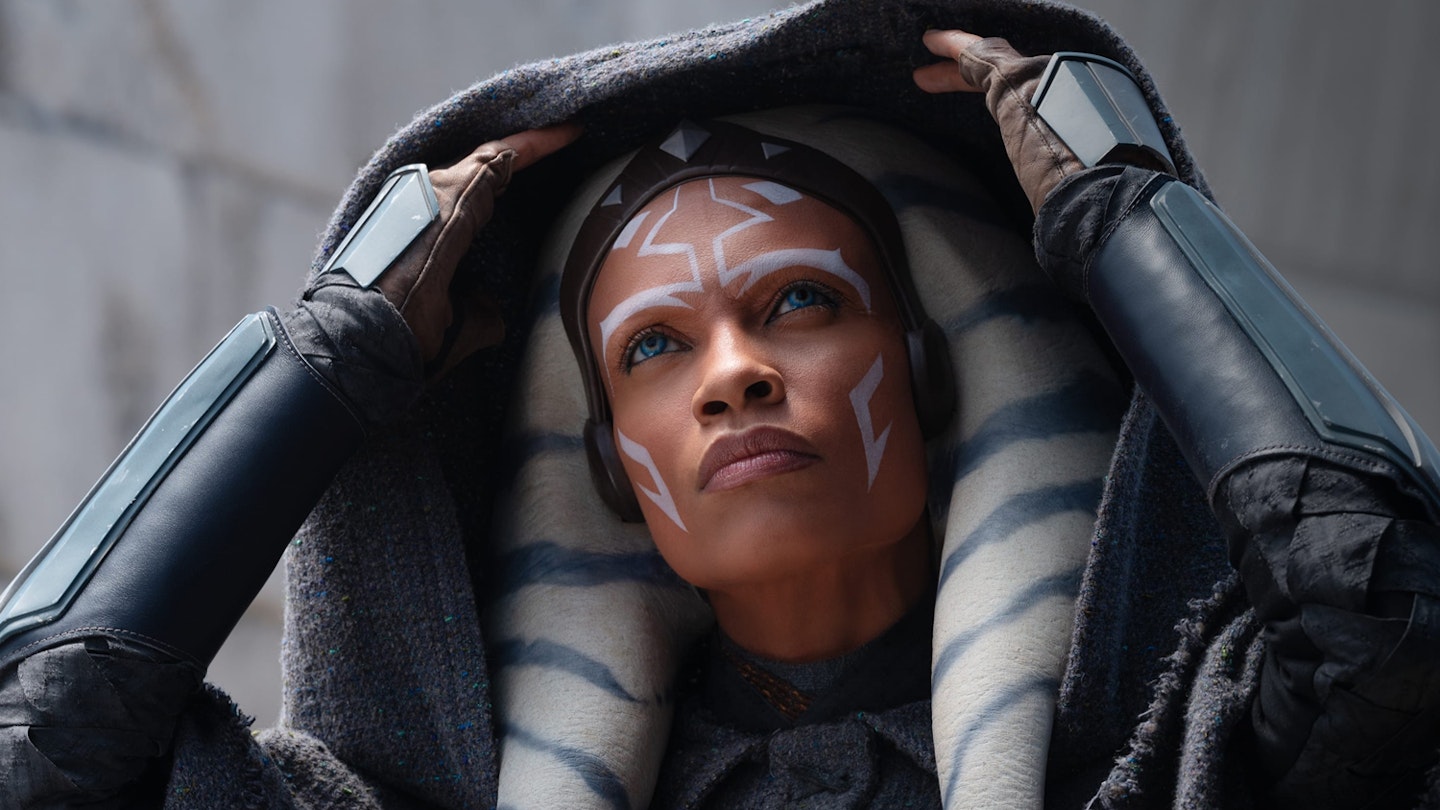It's generally agreed that The Empire Strikes Back is the best film of George Lucas' initial trilogy (despite a latter-day shift toward the original's storytelling purity). Not a sequel as such, but the next part of a continuing story, Empire marks enormous progression both in terms of the mythos of the series and in the filmmaking quality itself.
No longer tethered by the need to establish this fabulous universe wrapped in the arcane mysticism of the Force, this is a film far more sophisticated, awe-inspiring and daring (what do you mean Han Solo stays frozen in carbonite?). The actors too, reassured this was not some tinpot sci-fi quickie, have settled comfortably into their characters. Which is a good thing given the nightmare wrought for them by writers Lucas, Lawrence Kasdan and Leigh Brackett. At once more graceful and melancholic than its predecessor, Kershner enhances the pensive mood of impending tragedy with an array of inhospitable worlds (we travel from the icescape of Hoth to the swamp of Dagobah to a sleek, sterile city in the clouds). Bespin, the Cloud City, the most awesome of any of the Star Wars arenas, is a beautiful exterior with a dark heart. The film culminates in a whirl of emotional intensity and the infernal machine of the carbon freezing chamber. With John Williams' breathtaking score and the dark red hellish lighting (the characters have arrived in Hell — this being the "second day" of the trilogy), the whole feel is of a Wagnerian opera: dark and epic.
Then there is the devastating confrontation between Luke and Vader. Masterfully choreographed, their duel culminates on a thin gantry
protruding out over the vast depths that are the hollow core of the Cloud City. Magnificently visualised, the dizzying vertiginous terror of the moment encapsulating Luke's disorientation and horror at Vader's revelation of paternalism. Significantly, Luke chooses death over the outstretched hand of the dark side and is eventully born again as a Jedi.
But Act 2 is never consumed by darkness. There is comedy: C-3PO is still fussily camp as the Shakespearean chorus; Solo cracks wiser than ever before and new entry Yoda's knack of getting straight-to-the-point via the syntactical equivalent of Spaghetti Junction ("No! Try not. Do... or do not. There is no try.") is pure delight. And effectswise it offers unforgettable, if sometimes impractical, marvels: the awesome AT-ATs marching on the rebel base on Hoth, whose lurching gait was modelled on elephants, or Solo piloting the Milennium Falcon straight into an asteroid field.
It is on a psychological level, though, where Empire really reaches beyond its brethren. On Dagobah, where Luke is tutored in Jedi philosophy by the rubbery icon-to-be Yoda, the notion of the Force turns from the simple good/bad divide of Star Wars into a sea of moral ambiguity. Luke must fight the urges of anger and emotion to find the true path (a factor which left much of The Phantom Menace so limp — the Jedi characters were by definition unexciting). In the film's (and probably the series') most complex sequence Luke descends into a metaphorical dream womb, a representation of his unacknowledged fears. Here, prophetically, he confronts Darth Vader and discovers his own face beneath the mask. This is dark stuff, way beyond funny robots and knights in space.
Empire slipped the insufficient Return Of The Jedi a hospital pass. There was too much to settle (the whole damn universe to be saved before tea), and we had been so exhilarated by Empire that teddy bears at war was inevitably trite.
